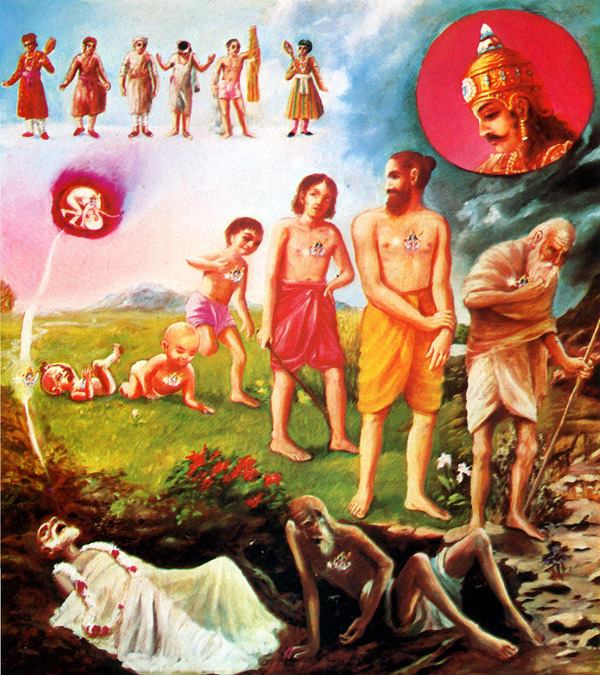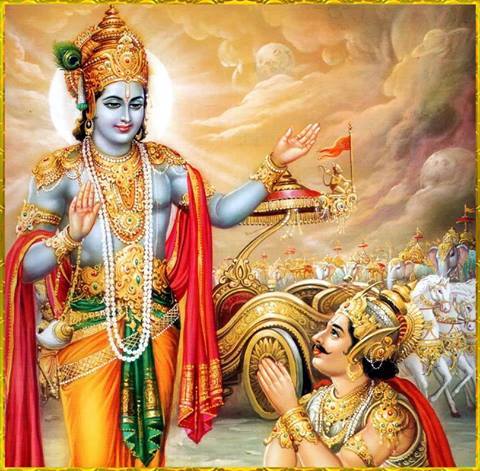A bit off topic :p
Month: June 2014
Sourastrian when came to tamilnadu
Yea sure
Name of the keralats death of kargil war
You want name of Keralites who martyred in Kargil war? At present we dont have any info on that , we’ll get back to you if we get any.

Bhagavad Gita,Chapter 2, Shloka 25
This soul is unmanifest; it is incomprehensible and it is spoken of as immutable. Therefore, knowing it as such, you should not grieve. (25)
यह देही प्रत्यक्ष नहीं दीखता, यह चिन्तनका विषय नहीं है और यह निर्विकार कहा जाता है। अत: इस देहीको ऐसा जानकर शोक नहीं करना चाहिये।
Bhagavad Gita, Book code 455, Gita Press, Gorkahpur, India

Bhagavad Gita,Chapter 2, Shloka 23-24
Weapons cannot cut it nor can fire burn it; water cannot wet it nor can wind dry it. For this soul is incapable of being cut, or burnt by fire; nor can it be dissolved by water and is undriable by air as well; This soul is eternal, omnipresent, immovable, constant and everlasting. (23-24)
शस्त्र इस शरीरीको काट नहीं सकते, अग्नि इसको जला नहीं सकती, जल इसको गीला नहीं कर सकता और वायु इसको सुखा नहीं सकती।यह शरीरी काटा नहीं जा सकता, यह जलाया नहीं जा सकता, यह गीला नहीं किया जा सकता और यह सुखाया भी नहीं जा सकता। कारण कि यह नित्य रहनेवाला, सबमें परिपूर्ण, अचल, स्थिर स्वभाववाला और अनादि है।
Bhagavad Gita, Book code 455, Gita Press, Gorkahpur, India

Bhagavad Gita,Chapter 2, Shloka 22
As a man shedding worn-out garments, takes other new ones, likewise, the embodied soul, casting off worn-out bodies, enters into others that are new. (22)
मनुष्य जैसे पुराने कपड़ोंको छोड़कर दूसरे नये कपड़े धारण कर लेता है, ऐसे ही देही पुराने शरीरोंको छोड़कर दूसरे नये शरीरोंमें चला जाता है।
Bhagavad Gita, Book code 455, Gita Press, Gorkahpur, India

Bhagavad Gita,Chapter 2, Shloka 20-21
The soul is never born, nor it ever dies; nor does it become only after being born. For, it is unborn, eternal, everlasting and primeval; even though the body is slain, the soul is not. Arjuna, the man who knows this soul to be imperishable; eternal and free from birth and decay-how and whom will he cause to be killed, how and whom will he kill? (20-21)
यह शरीरी न कभी जन्मता है और न मरता है तथा यह उत्पन्न होकर फिर होनेवाला नहीं है। यह जन्मरहित, नित्य-निरन्तर रहनेवाला, शाश्वत और अनादि है। शरीरके मारे जानेपर भी यह नहीं मारा जाता।हे पृथानन्दन! जो मनुष्य इस शरीरीको अविनाशी, नित्य, जन्मरहित और अव्यय जानता है, वह कैसे किसको मारे और कैसे किसको मरवाये?
Bhagavad Gita, Book code 455, Gita Press, Gorkahpur, India

Bhagavad Gita,Chapter 2, Shloka 18-19
All these bodies pertaining to the imperishable, indefinable and eternal soul are spoken of as perishable; therefore, Arjuna, fight. Both of them are ignorant, he who considers the soul to be capable of killing and he who takes it as killed; for verily the soul neither kills, nor is killed. (18-19)
अविनाशी, जाननेमें न आनेवाले और नित्य रहनेवाले इस शरीरी के ये देह अन्तवाले कहे गये हैं। इसलिये हे अर्जुन! तुम युद्ध करो।जो मनुष्य इस अविनाशी शरीरीको मारनेवाला मानता है और जो मनुष्य इसको मरा मानता है, वे दोनों ही इसको नहीं जानते; क्योंकि यह न मारता है और न मारा जाता है।
Bhagavad Gita, Book code 455, Gita Press, Gorkahpur, India

Bhagavad Gita,Chapter 2, Shloka 16-17
The unreal has no existence, and the real never ceases to be; the reality of both has thus been perceived by the seers of Truth. Know that alone to be imperishable which pervades this universe; for no one has power to destroy this indestructible substance. (16-17)
असत्का तो भाव (सत्ता) विद्यमान नहीं है और सत्का अभाव विद्यमान नहीं है। तत्त्वदर्शी महापुरुषोंने इन दोनोंका ही तत्त्व देखा अर्थात् अनुभव किया है।अविनाशी तो उसको जान, जिससे यह सम्पूर्ण संसार व्याप्त है। इस अविनाशीका विनाश कोई भी नहीं कर सकता।
Bhagavad Gita, Book code 455, Gita Press, Gorkahpur, India

Bhagavad Gita,Chapter 2, Shloka 14-15
O son of Kunti, the contacts between the senses and their objects, which give rise to the feelings of heat and cold, pleasure and pain etc., are transitory and fleeting; therefore, Arjuna, endure them.Arjuna, the wise man to whom pain and pleasure are alike, and who is not tormented by these contacts, becomes eligible for immortality. (14-15)